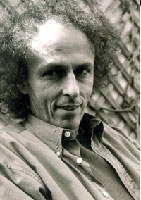|
|
|
THE MOUSTRAP (JOHN ALLEN PAULOS:) The theory of intelligent design, the purportedly more scientific descendant of creation science, rejects Darwin's theory of evolution as being unable to explain the complexity of life. How, ask its supporters, can biological phenomena such as the clotting of blood have arisen just by chance? A key supporter likens the "irreducible complexity" of such phenomena to the irreducible complexity of a mousetrap. If one piece is missing ó spring, metal platform or board ó it is useless. The implicit suggestion is that all the parts of a mousetrap would have had to come into being at once, an impossibility unless there were an intelligent designer. Design proponents argue that what's true for the mousetrap is all the more true for complex biological phenomena. If any of the 20 or so proteins involved in blood clotting is absent, clotting doesn't occur. So, the creationist argument goes, these proteins must have all been brought into being at once by a designer. But the theory of evolution does explain the evolution of complex biological organisms and phenomena, and the argument from design, which dates from the 18th century, has been decisively refuted. Rehashing the refutation is not my goal. Those who reject evolution are usually immune to such arguments. Rather, my intention here is to develop some loose analogies between these biological issues and related economic ones and to show that these analogies point to a surprising crossing of political lines. Let me begin by asking how it is that modern free market economies are as complex as they are, boasting amazingly elaborate production, distribution and communication systems? Go into almost any drug store and you can find your favourite candy bar. And what's true at the personal level is true at the industrial level. Somehow there are enough ball bearings and computer chips in just the right places in factories all over the country. The physical infrastructure and communication networks are also marvels of integrated complexity. Fuel supplies are, by and large, where they're needed. Email reaches you in Miami as well as in Milwaukee, not to mention Barcelona and Bangkok. The natural question, discussed first by Adam Smith and later by Friedrich Hayek and Karl Popper among others, is who designed this marvel of complexity? Which commissar decreed the number of packets of dental floss for each retail outlet? The answer, of course, is that no economic god designed this system. It emerged and grew by itself. No one argues that all the components of the candy bar distribution system must have been put into place at once, or else there would be no Snickers at the corner store. So far, so good. What is more than a bit odd, however, is that some of the most ardent opponents of Darwinian evolution ó for example, many fundamentalist Christians ó are among the most ardent supporters of the free market. They accept the market's complexity without qualm, yet insist the complexity of biological phenomena requires a designer. They would reject the idea that there is or should be central planning in the economy. They would point out that simple economic exchanges which are beneficial to people become entrenched and then gradually modified as they become part of larger systems of exchange, while those that are not beneficial die out. Yet some of these same people refuse to believe natural selection and "blind processes" can lead to biological order arising spontaneously. There are, of course, quite significant differences and disanalogies between biological systems and economic ones (one being that biology is a much more substantive science than economics), but these shouldn't blind us to their similarities nor mask the obvious analogies. These analogies prompt two final questions. What would you think of someone who studied economic entities and their interactions in a modern free market economy and insisted that they were, despite a perfectly reasonable and empirically supported Smithian account of their development, the consequence of some all-powerful, detail-obsessed economic law-giver? You might deem such a person a conspiracy theorist. And
what would you think of someone who studied biological processes
and organisms and insisted that they were, despite an perfectly
reasonable and empirically supported Darwinian account of their
development, the consequence of some all-powerful, detail-obsessed
biological law-giver? [Editor's Note: First published in The Guardian on September 8th] |
| SUMMER BOOKS |
| John Brockman, Editor and Publisher |
| |Top| |

